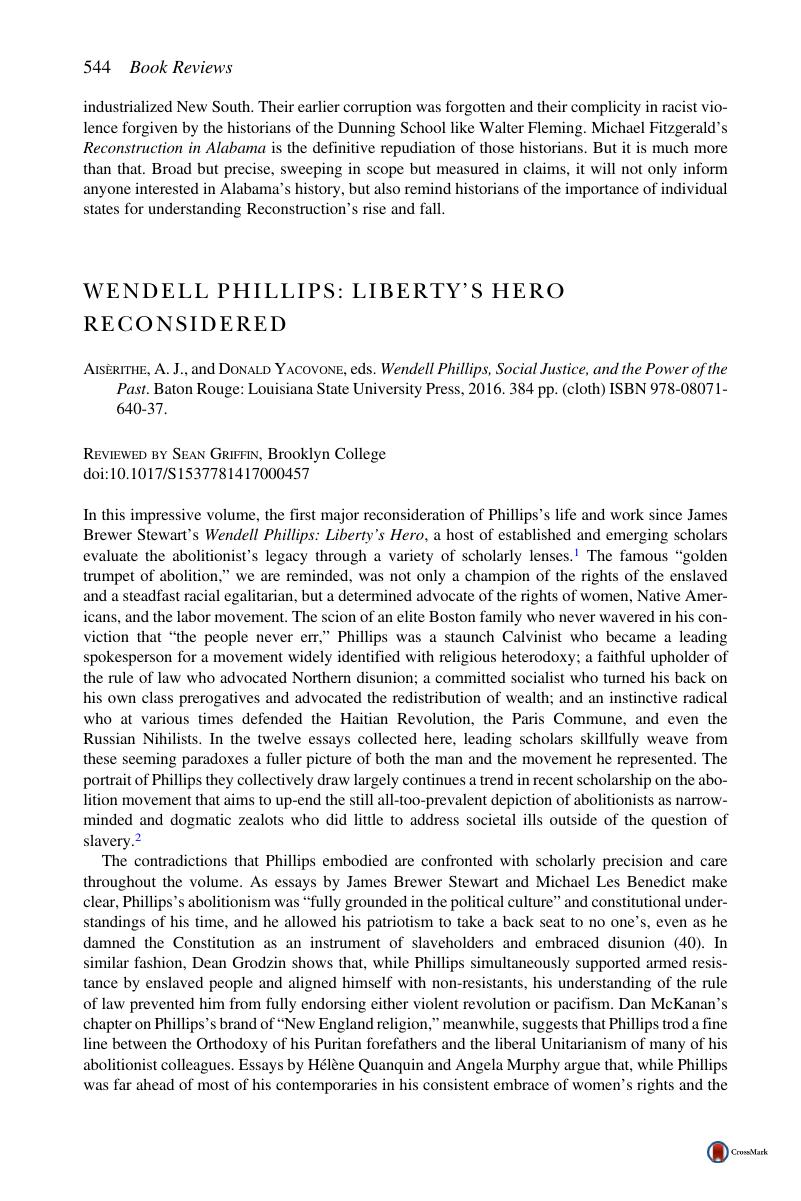No CrossRef data available.
Published online by Cambridge University Press: 07 November 2017

1 Stewart, James Brewer, Wendell Phillips: Liberty's Hero (Baton Rouge: Louisiana State University Press, 1986)Google Scholar.
2 Prominent examples of this trend include Sinha, Manisha, The Slave's Cause: A History of Abolition (New Haven, CT: Yale University Press, 2016)Google Scholar; and McDaniel, W. Caleb, The Problem of Democracy in the Age of Slavery: Garrisonian Abolitionists and Transatlantic Reform (Baton Rouge: Louisiana State University Press, 2013)Google Scholar. Adhering more closely to an older depiction of abolitionists as irrational and overzealous is Andrew Delbanco's depiction in Delbanco, , ed., The Abolitionist Imagination (Cambridge, MA: Harvard University Press, 2013)Google Scholar.
3 Yacovone cites Oakes, James, The Scorpion's Sting: Antislavery and the Coming of the Civil War (New York: W. W. Norton, 2014)Google Scholar; and Oakes, , Freedom National: The Destruction of Slavery in the United States, 1861–1865 (New York: W. W. Norton, 2013)Google Scholar as examples of this tendency.